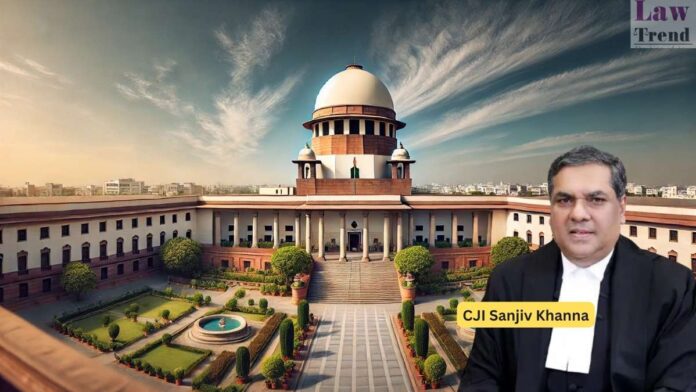New Delhi, April 29, 2025 – Chief Justice of India (CJI) Sanjiv Khanna today firmly rebuked Advocate Mathews Nedumpara, cautioning him against making political statements during court proceedings. The exchange took place when Nedumpara sought the listing of his petition challenging the collegium system for judicial appointments.
Nedumpara, while mentioning his 2022 writ petition that demands the abolition of the collegium system and revival of the National Judicial Appointments Commission (NJAC), said,
“CJI Chandrachud said it five times (to list)…. NJAC is the need of the hour, it has to come. The Vice President has said it, and the people of this country demand it. Your lordship has promised to list it.”
Responding sharply, CJI Khanna remarked,
“Do not put words in my mouth, that’s all. Please… do not make a political speech in the court, that’s it.”
The incident underlines the judiciary’s continuing caution regarding politically sensitive matters surrounding the appointment of judges, especially after the Supreme Court, in its 2015 verdict, struck down the NJAC as unconstitutional and upheld the primacy of the collegium system.
Background of the Petition
Advocate Nedumpara had initially filed the petition in 2022, seeking to dismantle the collegium system that has been criticised in some quarters for a lack of transparency and accountability. He argued for reinstating the NJAC, which was intended to give the executive a greater role in judicial appointments.
However, the Supreme Court Registry had refused to accept the petition, citing that the matter had already been conclusively settled by the Constitution Bench in the 2015 NJAC judgment. The Registry noted that Nedumpara’s plea essentially amounted to an attempt to seek a review of that verdict under the guise of a fresh writ petition filed under Article 32 of the Constitution.
Invoking Order XV Rule 5 of the Supreme Court Rules, 2013, the Registry stated:
“The Registrar may refuse to receive a petition on the ground that it discloses no reasonable cause or is frivolous or contains scandalous matter, but the petitioner may within fifteen days of the making of such order, appeal by way of motion, from such refusal to the Court.”
Despite the rejection, Nedumpara continued efforts to have his petition listed, which culminated in today’s courtroom exchange.
Context: Collegium vs. NJAC Debate
The NJAC Act, passed by Parliament in 2014 and ratified by a majority of states, proposed a commission comprising representatives from the judiciary, the executive, and eminent persons to appoint judges. However, the Supreme Court in Supreme Court Advocates-on-Record Association v. Union of India (2015) struck down the Act, holding it unconstitutional as it undermined the judiciary’s independence.
Since then, debates over reforming the judicial appointment process have periodically resurfaced, often reigniting political and legal tensions.




